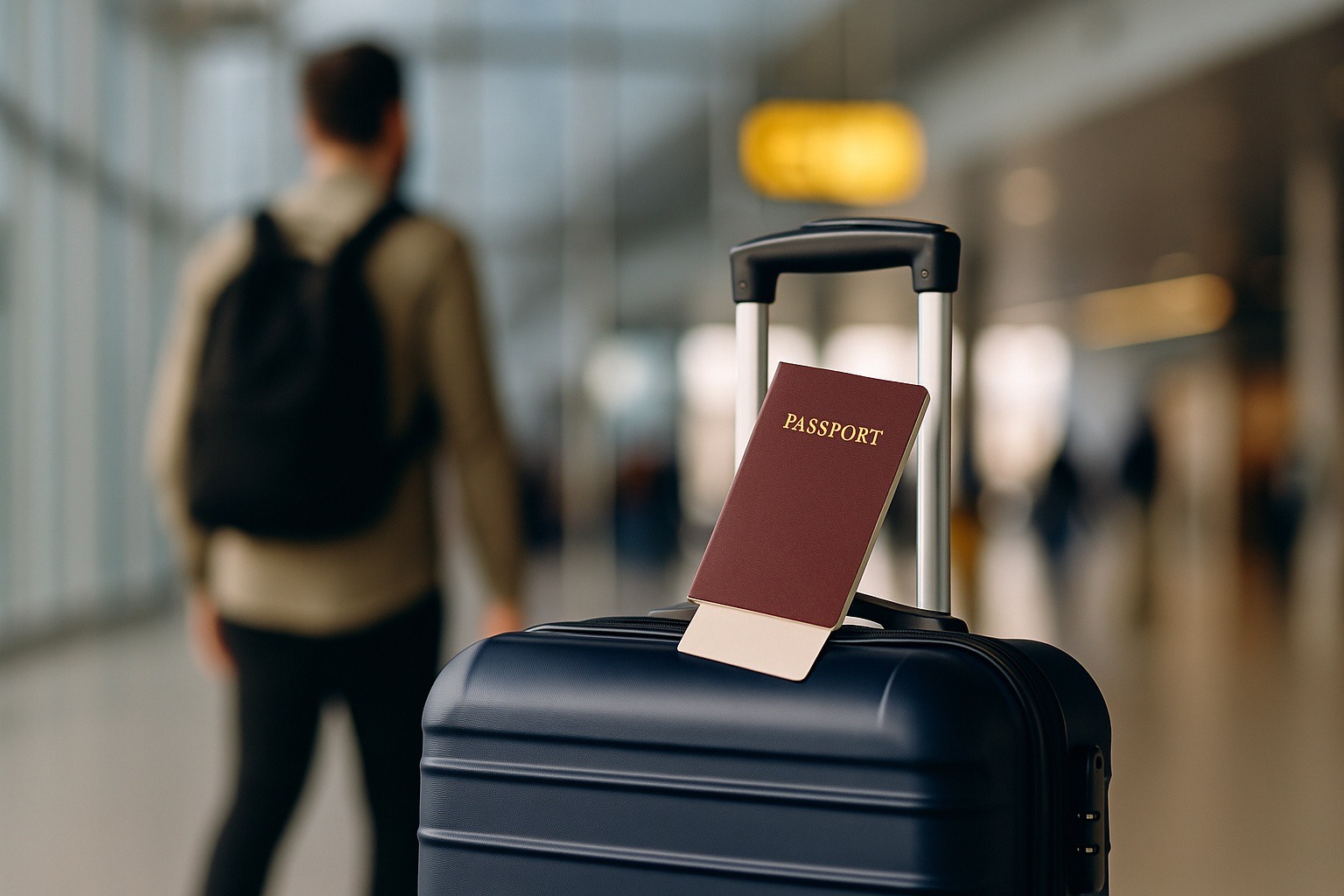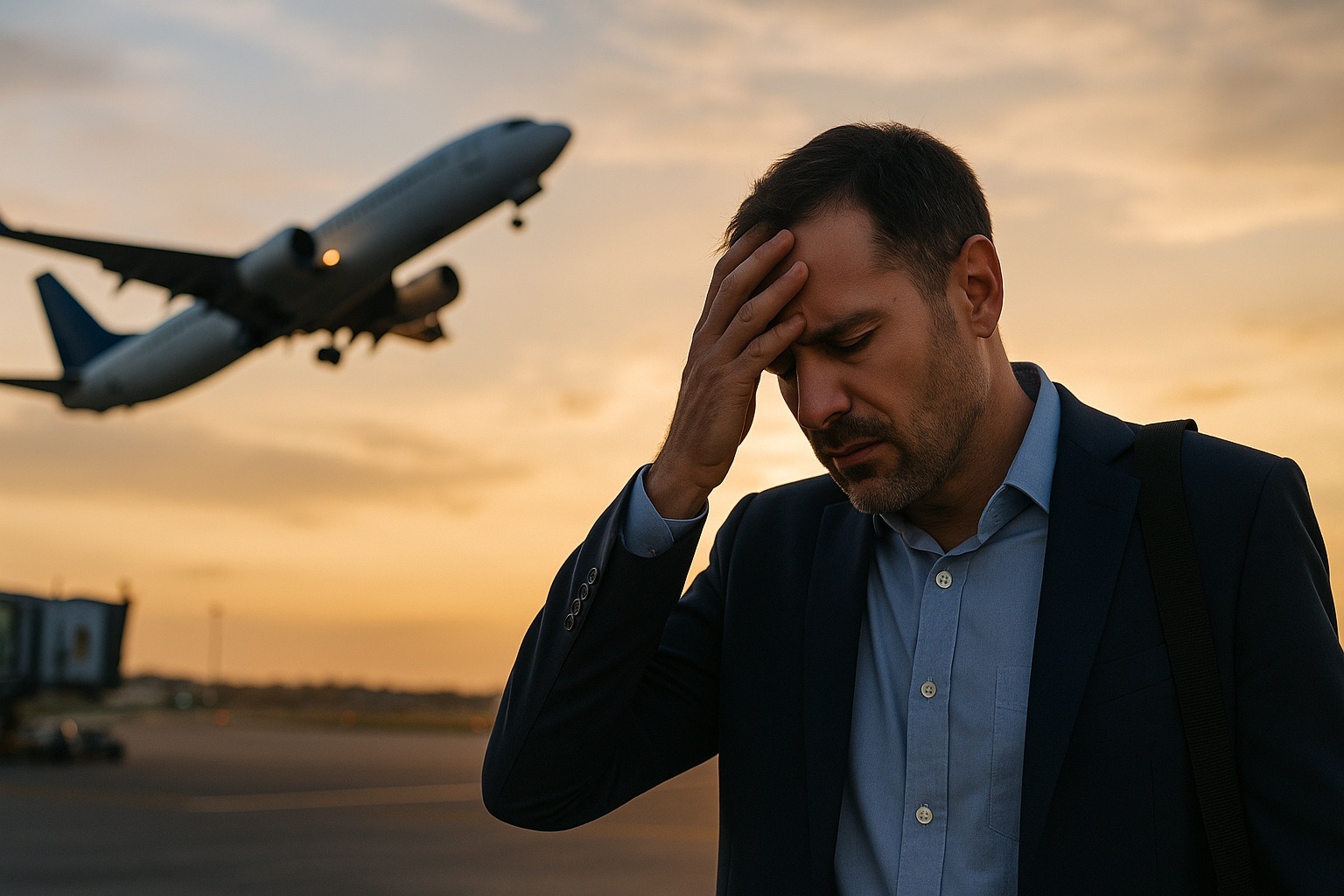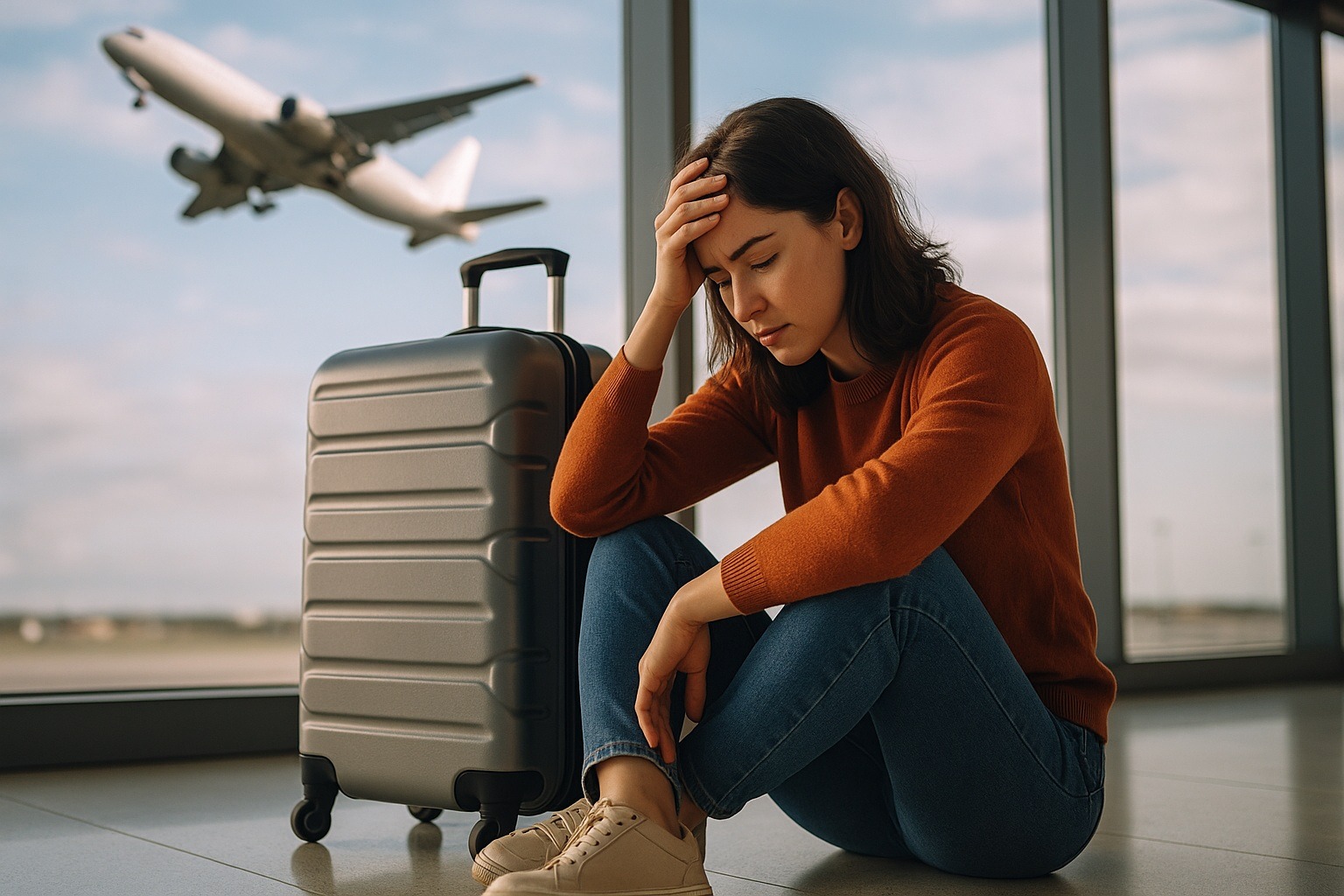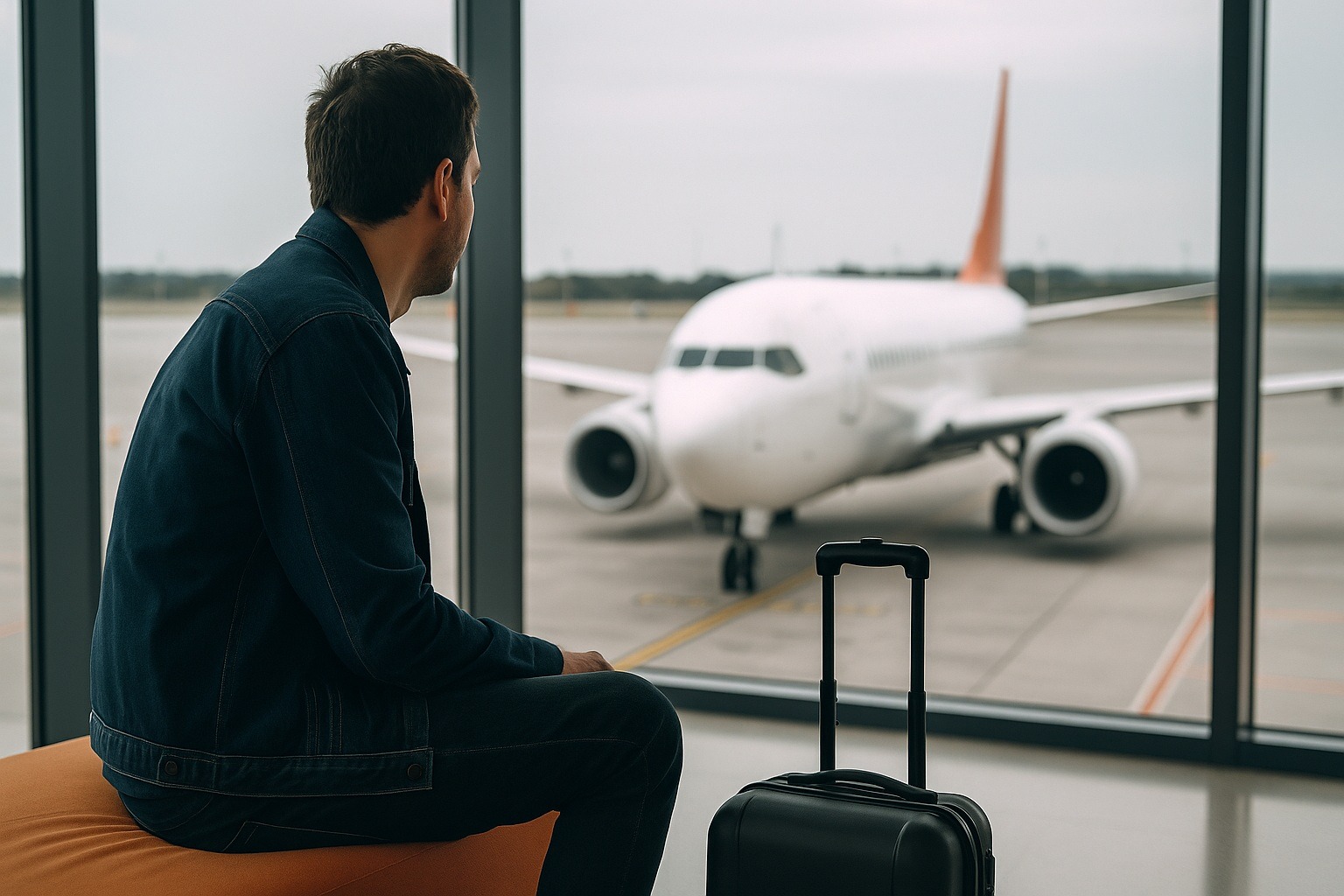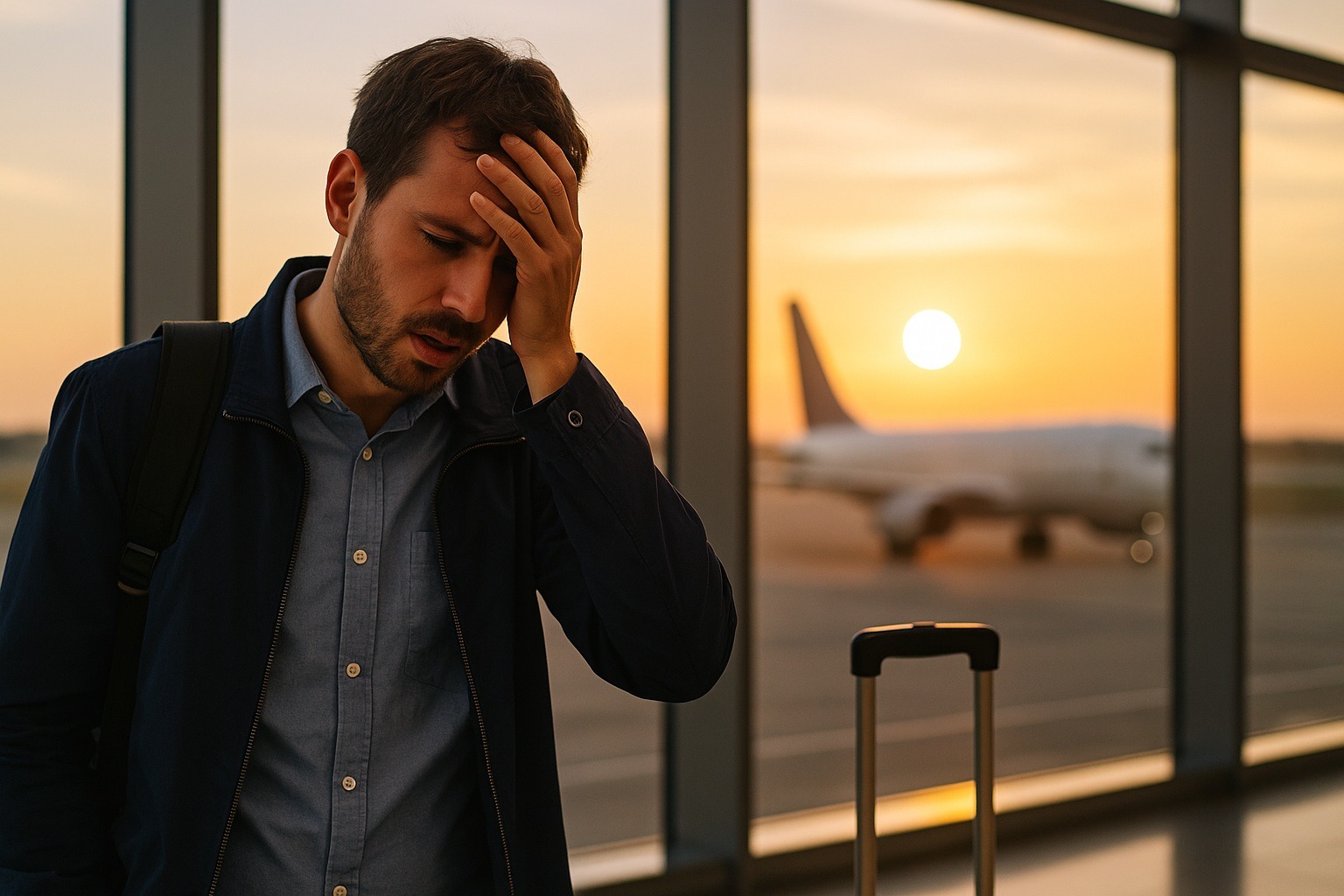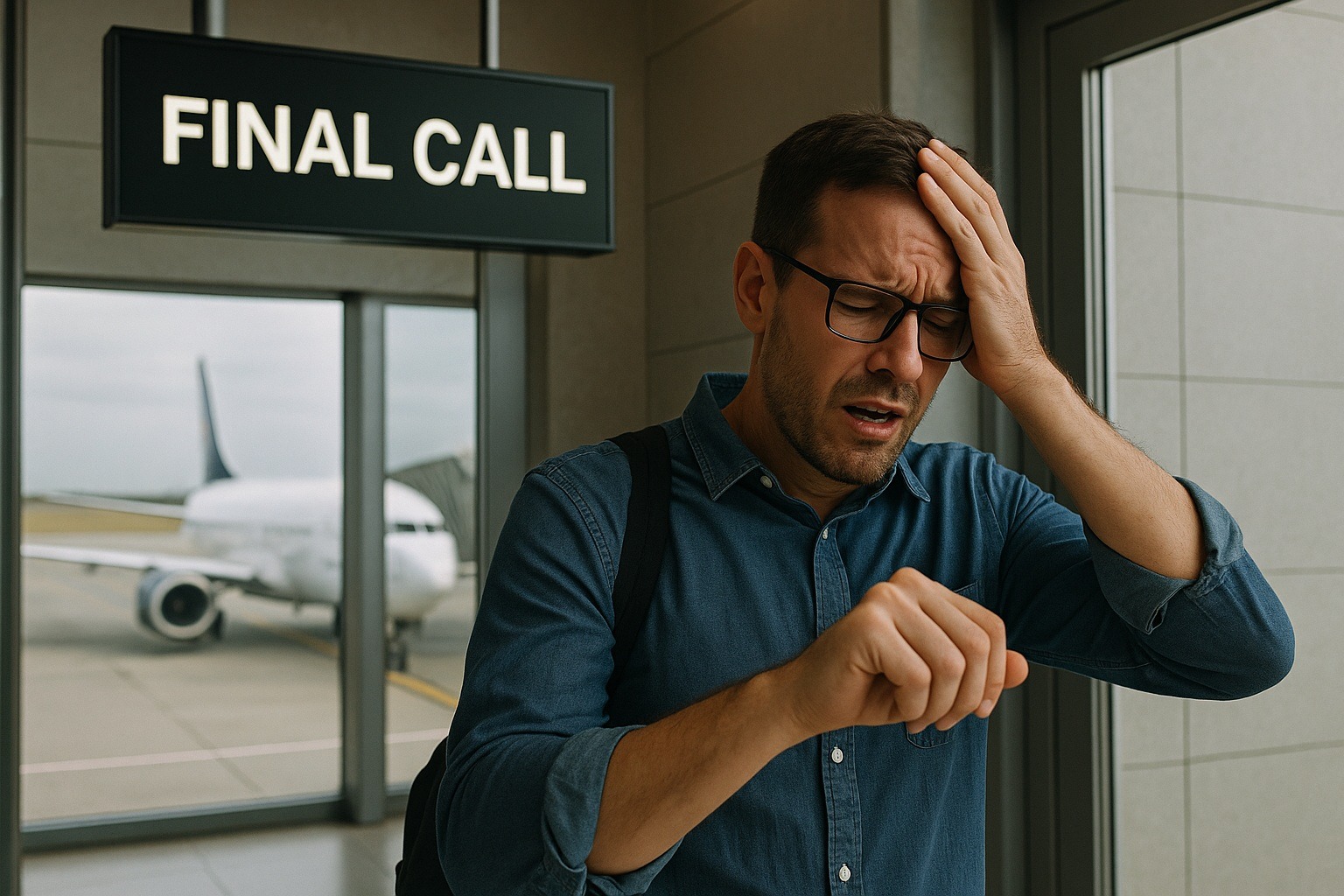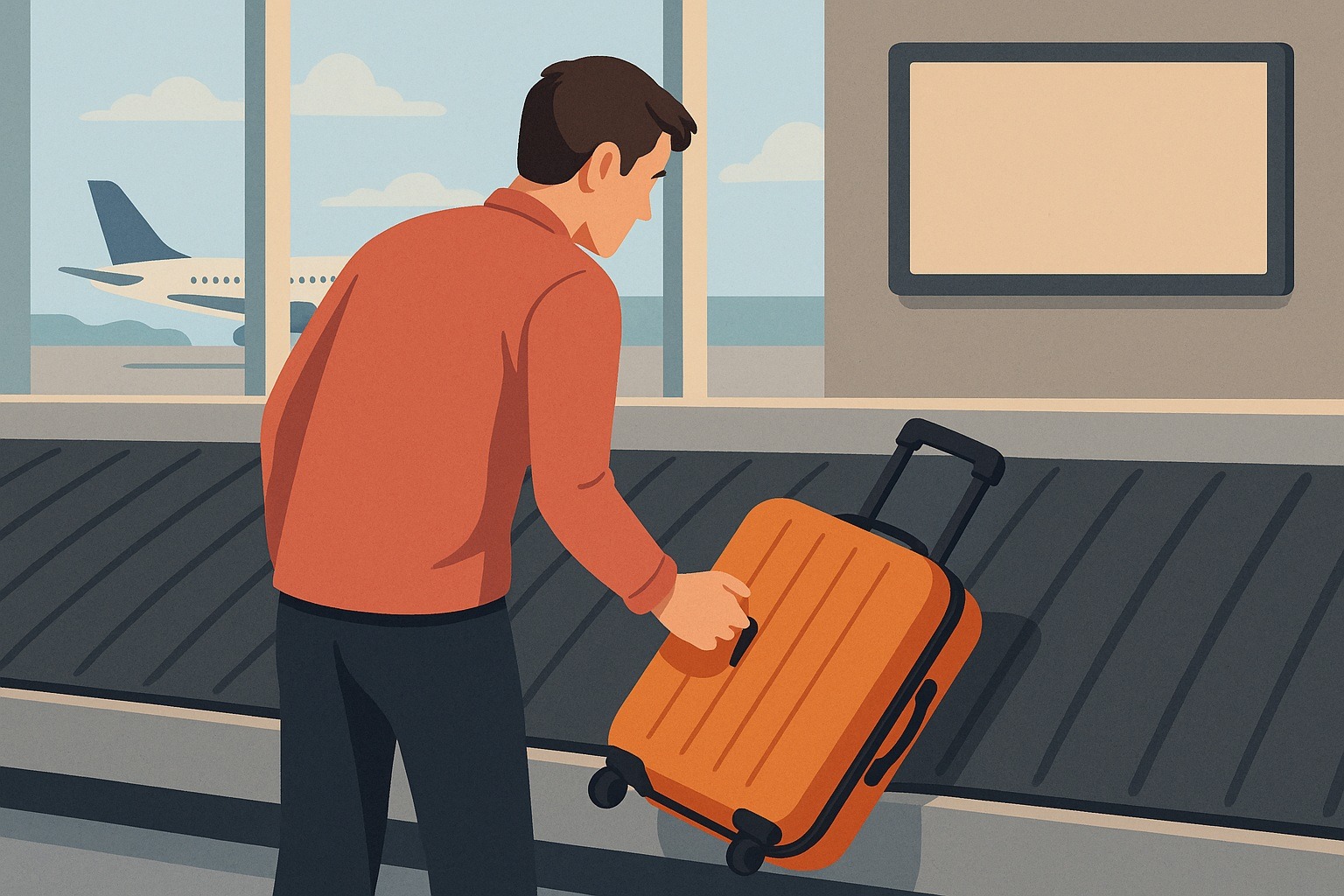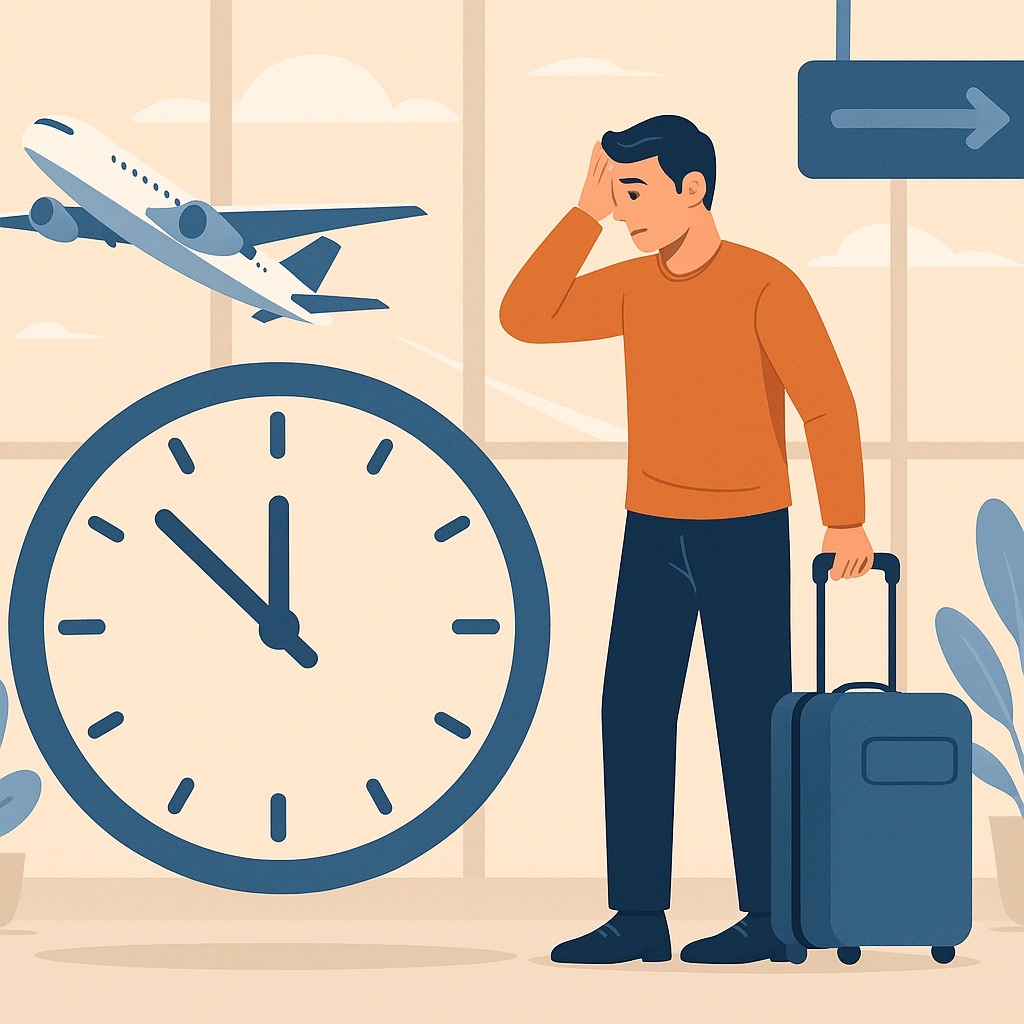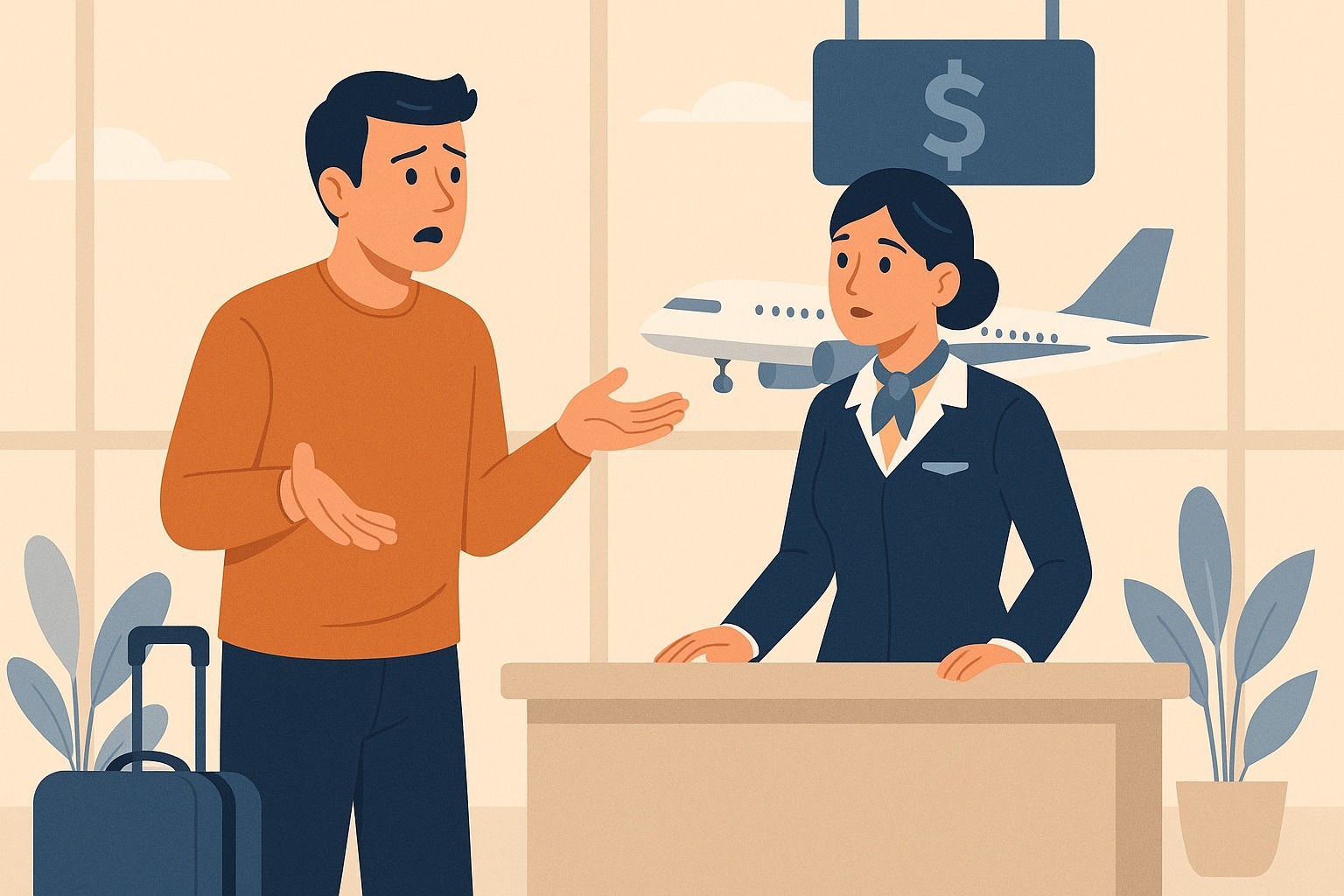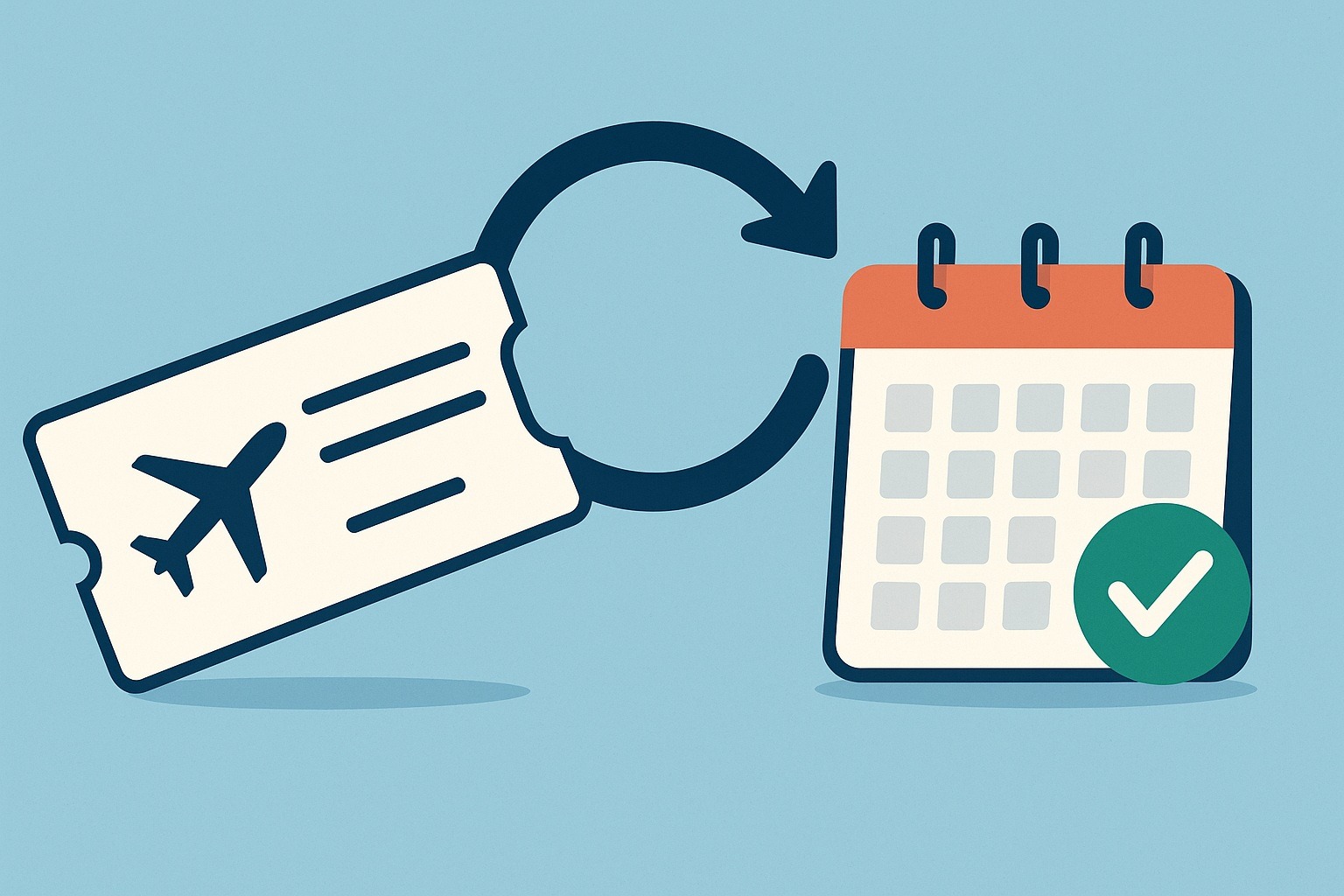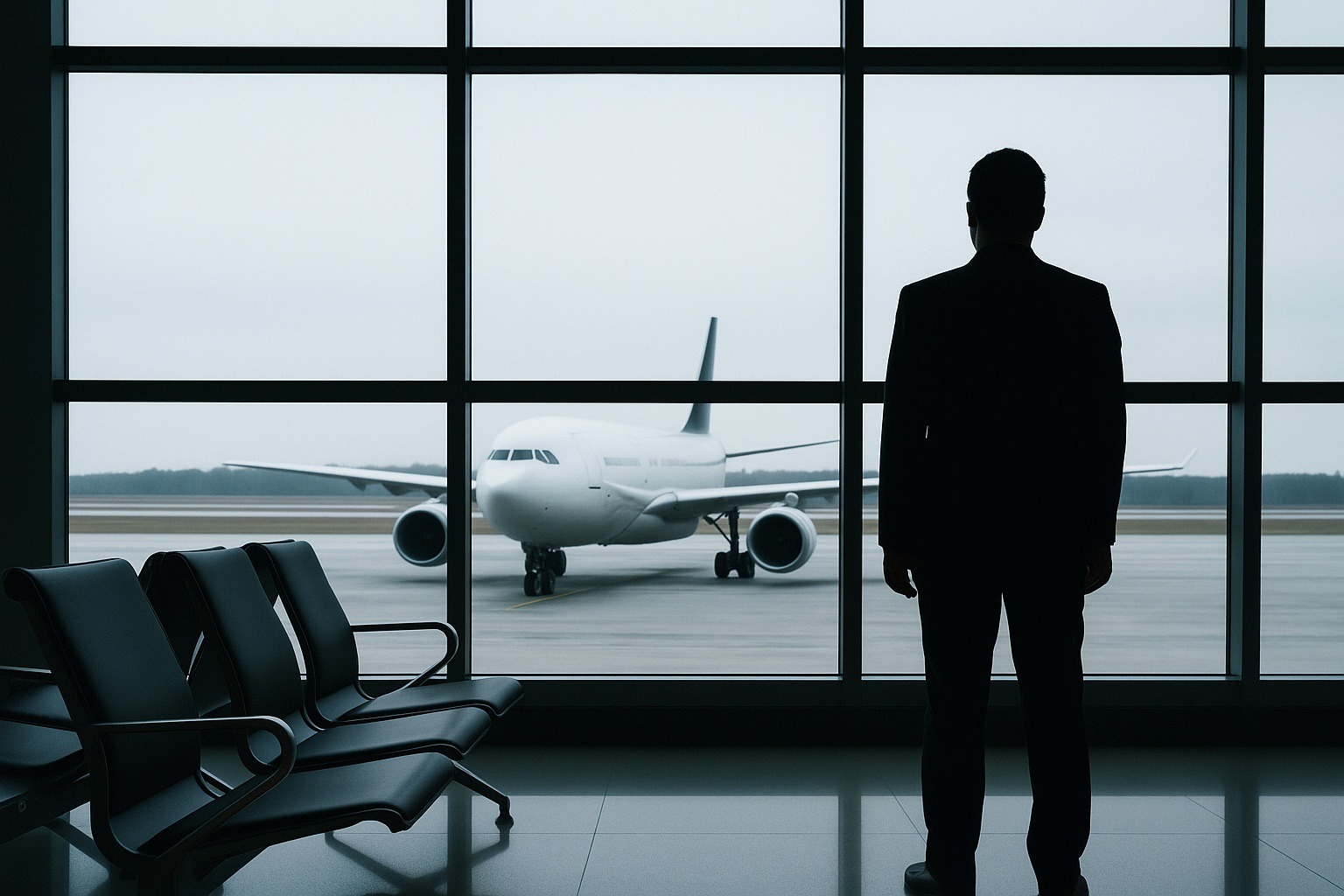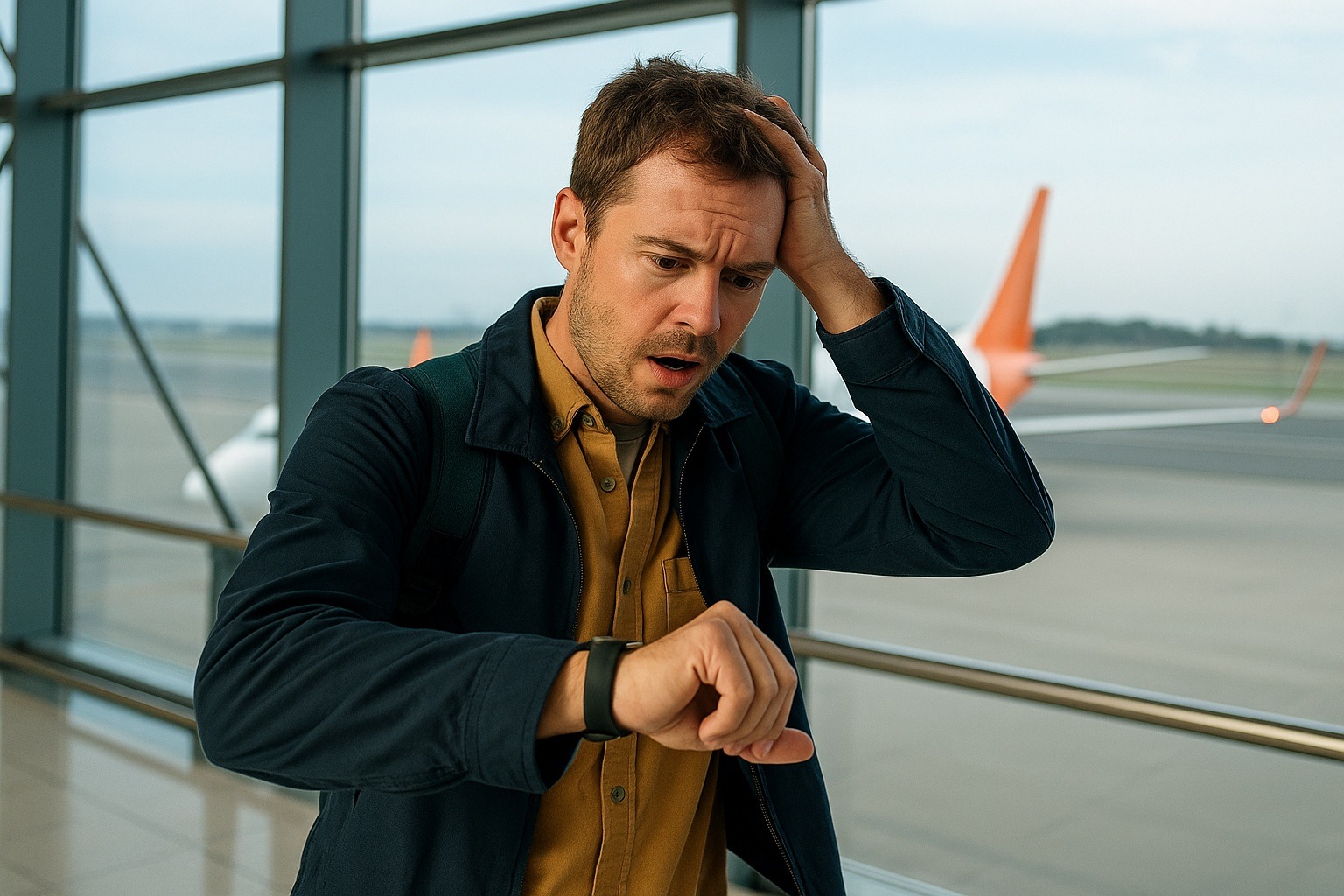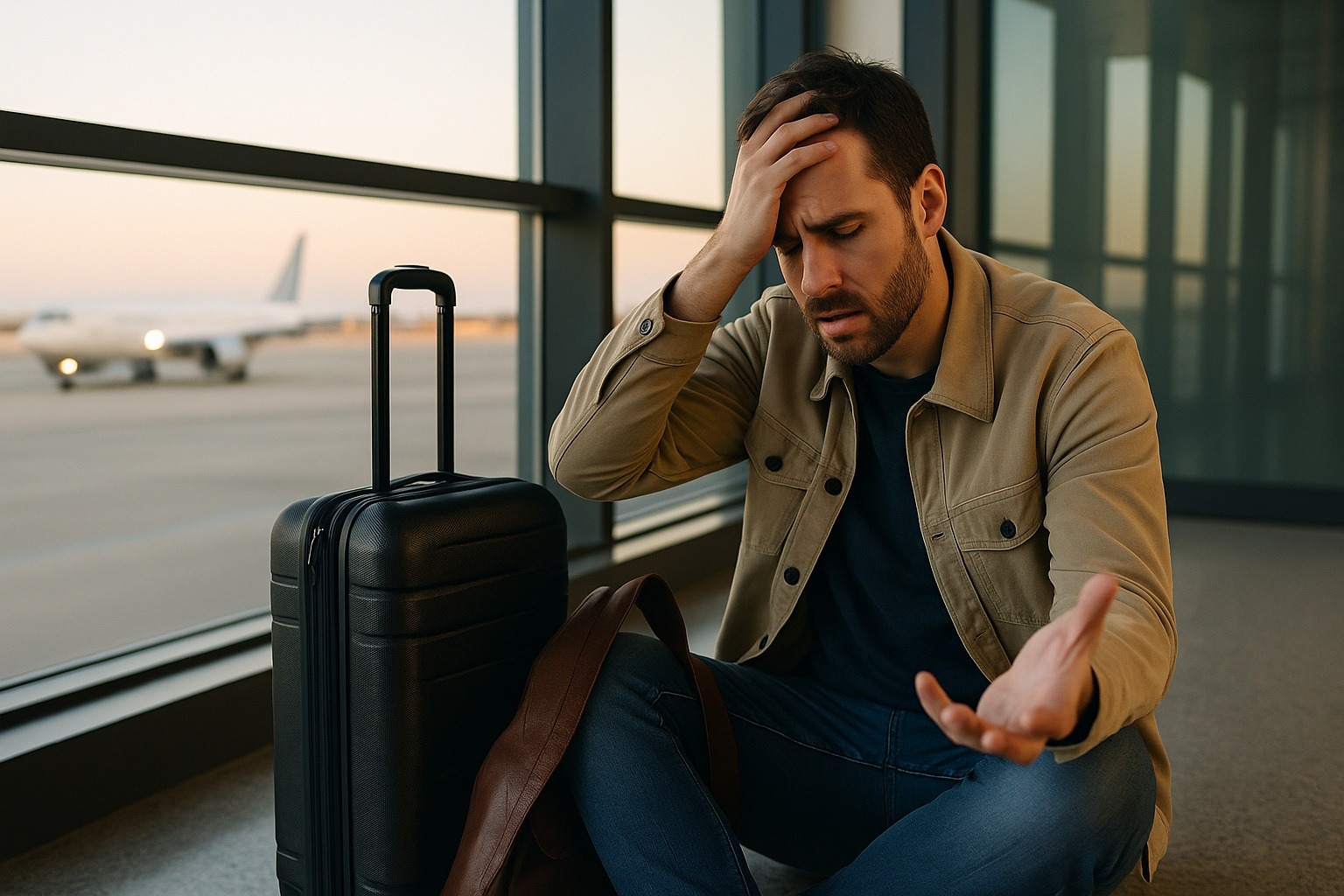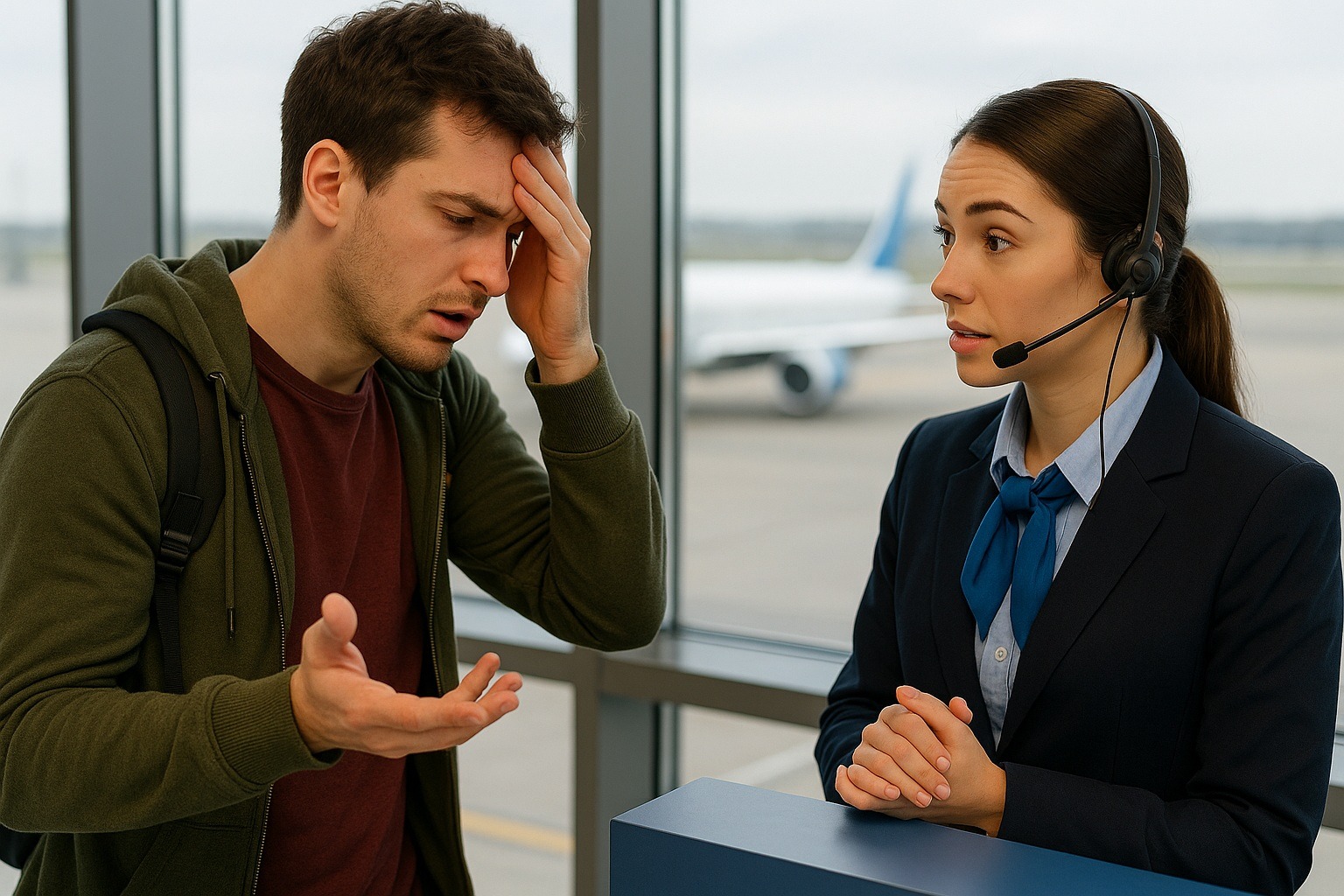What happens if you miss a connecting flight depends on how your tickets were purchased and the reason for the delay. Here are the main scenarios:
1. Tickets Purchased Under a Single Reservation (Airline-Responsible Connection)
If your first flight is delayed or canceled and this causes you to miss your connecting flight, the airline is responsible. In this case:
The airline will transfer you to the next available flight at no additional cost.
Meals, accommodation, or transport services may be provided while waiting (especially in long delays).
In some cases, you may be entitled to compensation for long delays (applicable under EU regulations).
2. Tickets Purchased Separately (Passenger-Responsible Connection)
If you bought two separate tickets from different airlines:
You may lose the right to board the second flight.
The airline is not responsible for delays or missed connections.
You may have to buy a new ticket, which could lead to additional costs.
3. What Should You Do?
Contact the airline’s customer service immediately once you realize you’ve missed your flight.
Carefully calculate layover times when booking (especially if you must clear customs or change terminals).
If possible, choose connecting flights under a single booking (single ticket), as this offers legal protection.
In short, to avoid complications with connecting flights, book under one reservation and pay attention to official minimum connection times.
Do I Need to Buy a New Ticket If I Miss My Flight?
Yes, in many cases, a passenger who misses their flight may be transferred to another flight, but this depends on several factors such as the ticket type, the airline’s policies, and the reason for missing the flight. Here are the main scenarios:
1. Promotional and Non-Changeable Tickets
These tickets are typically non-refundable and non-changeable. If you miss your flight, the ticket is usually void, and the airline is not obligated to offer an alternative. You will likely need to purchase a new ticket.
2. Flexible or Open-Date Tickets
If you have a flexible, refundable, or open ticket, the airline may allow you to transfer to another flight for an additional fee. This can save you from having to buy a completely new ticket.
3. If You Checked In but Missed the Flight
If you completed check-in but still missed your flight, your ticket may be invalidated. However, some airlines might allow you to transfer to another flight on the same day for an extra charge, depending on availability and internal policies.
4. If the Missed Flight Is Due to Airline Fault
If the missed flight is caused by the airline (e.g., delays or operational issues), they are required to rebook you on the next available flight at no extra cost. In this case, you do not need to buy a new ticket.
Conclusion:
Whether you can be transferred to another flight after missing one depends on your ticket conditions, the reason for the missed flight, and the airline’s policies. Always contact the airline as soon as possible to discuss your options.
Can a Passenger Who Misses Their Flight Be Transferred to Another One?

Yes, in some cases, a passenger who misses their flight can be transferred to another one. However, this depends entirely on the reason for missing the flight, the ticket type, and the airline’s policies. Here are the possible scenarios:
1. If the Airline Is at Fault (Delays, Cancellations, System Errors)
If your missed flight is due to the airline’s fault (e.g., connection delay, technical issue), the airline will transfer you to the next available flight free of charge.
In such cases, accommodation, meals, and ground transfers may also be provided.
2. If the Flight Is Missed Due to Passenger’s Own Mistake
If the flight is missed because of your own actions (e.g., arriving late, going to the wrong terminal, missing the check-in window), the airline is not obliged to transfer you to another flight.
However, some airlines may offer a “standby” option or last-minute change for a fee on the same day to reduce passenger inconvenience.
3. Depending on Ticket Type
With flexible or premium class tickets, passengers may be offered an alternative flight for free or a small fee after missing a flight.
For promotional or discounted tickets, transfers are generally not allowed, and a new ticket must be purchased.
Conclusion:
You may be transferred to another flight if you miss yours, but this depends on factors such as your ticket type, the airline’s flexibility, and the reason for missing the flight. The best course of action is to contact the airline’s customer service immediately for the most accurate information.
What Happens If You Don’t Board After the Final Call?

If a passenger fails to board the plane after the final call, the following procedures are generally applied:
1. Doors Are Closed and the Passenger Is Not Allowed to Board
The final call signals that the boarding gate is about to close and the passenger must proceed to the aircraft immediately. After a short waiting period (usually 5–10 minutes), if the passenger still hasn’t arrived:
The gate is closed, and boarding is no longer allowed.
The passenger is marked as a “no-show” in the system.
2. Checked Baggage Is Removed for Security Reasons
If the passenger has checked in and handed over their baggage:
Once it’s confirmed they are not on board, their baggage is removed from the aircraft.
This process may delay the flight as the specific bag must be manually located and offloaded.
3. Ticket May Be Forfeited
With promotional or non-refundable tickets, missing the flight makes the ticket void.
Flexible tickets may offer the chance to rebook with or without a penalty.
4. Refund or Change Rights May Be Lost
In such cases, the passenger often loses the right to a refund or to make changes.
Some airlines may only refund the taxes.
Conclusion:
Not boarding the plane after the final call can have serious consequences. It is crucial to reach the gate on time and be ready before the final call is announced.
Can a Passenger Who Missed the Flight Get Their Baggage Back?

Whether a passenger who missed their flight can retrieve their baggage depends on whether check-in was completed and what stage the aircraft is in when the missed bag is discovered. Here are the main scenarios:
1. If Check-in Was Completed and Baggage Was Dropped Off
If the passenger has checked in and handed over baggage but does not board the flight, security regulations require that the baggage be removed from the aircraft.
- The bag is offloaded before departure and sent back to the baggage claim area by airline staff.
- The passenger can usually retrieve it a few hours later or within the same day by contacting the airline’s baggage office or information desk.
2. If the Baggage Remains on the Aircraft (Rarely)
According to international security protocols, baggage cannot be transported if the owner is not on board.
- In rare or exceptional circumstances, baggage may fly without the passenger.
- In such a case, the bag is sent to the destination and must later be reclaimed from the airline.
3. If the Flight Was Missed Before Check-in
If the flight was missed before check-in, no baggage would have been handed over, so this situation does not apply.
4. What to Do to Retrieve the Bag
- Report to the airport’s baggage services (Lost & Found).
- Present your boarding pass, ID, and baggage tag.
- Bags are usually returned after the flight departs and the security process is completed.
Conclusion:
If you missed your flight after checking in and dropping off your baggage, your bag will be removed from the plane for security reasons and returned to you—but the process may take several hours.
Why Is It Important to Arrive Early at the Airport?

Arriving early at the airport is crucial to ensuring a smooth and stress-free flight experience. Here’s why:
1. Check-In and Baggage Drop-Off Time
Most airlines recommend arriving at least 1–2 hours before domestic flights and 2–3 hours before international flights. Being early allows you to complete check-in and baggage drop-off procedures on time. Passengers who arrive late may be denied boarding once check-in closes.
2. Security and Passport Controls
Security lines can be long, especially during peak hours. For international flights, passport checks and visa procedures can also take time. Arriving early helps you complete these steps without rushing.
3. Gate Changes and Terminal Directions
In large airports, gates and terminals may change unexpectedly. If you’re short on time, reaching the correct gate becomes harder. Arriving early helps you adjust easily to such changes.
4. Reducing the Risk of Missing the Flight
Unforeseen issues like traffic, public transport delays, or getting lost in the airport can increase the risk of being late. Getting to the airport early allows you to handle these risks in advance.
5. A Comfortable and Stress-Free Start
Arriving early is not only practical—it’s also beneficial mentally. You’ll have time to relax, shop, eat, or simply sit and rest before boarding. This makes for a calmer and more pleasant start to your journey.
In short, arriving early at the airport is critical for managing your time and handling any unexpected issues that may arise.
Can a Passenger Who Misses a Flight Due to Overbooking Receive Compensation?

Yes, if you are denied boarding due to overbooking (and not because of your own fault), you may be entitled to compensation. However, this right depends on certain conditions and legal regulations:
✈️ What Is Overbooking?
Overbooking occurs when airlines sell more tickets than there are seats on the plane, assuming some passengers won’t show up. If all passengers do show up, there may not be enough seats, and some travelers are denied boarding.
🧾 When Are You Entitled to Compensation?
You may be eligible for compensation if the following conditions are met:
You arrived at the airport on time but were not allowed to board,
You were denied boarding involuntarily, not because you volunteered,
Your documents and check-in were completed properly and on time,
Your flight falls under EU Regulation EC 261/2004 or similar national laws.
💶 Compensation Amounts (For EU Flights)
Compensation is determined based on the flight distance:
€250 for short flights up to 1,500 km
€400 for medium-haul flights between 1,500 and 3,500 km
€600 for long-haul flights over 3,500 km
You’re also entitled to meals, accommodation, transport, and communication support during your wait.
❗Important Notes
If you voluntarily gave up your seat in exchange for perks, you typically cannot claim compensation.
If you missed the flight due to your own fault (e.g., arriving late, missing check-in, incomplete documents), you are not entitled to compensation.
Can a Flight Ticket Be Changed or Turned into an Open Ticket?

Yes, flight tickets can usually be changed or converted into open tickets, but this depends entirely on the ticket type, purchase conditions, and the airline’s policies. Here are the key details:
✈️ 1. What Is a Flight Change?
A flight change means modifying details like the date, time, or route before departure.
Flexible tickets typically allow changes for free or with a small fee.
Promotional or discounted tickets often prohibit changes or charge high penalties and fare differences.
Changes must generally be requested a few hours before the scheduled flight time (e.g., at least 2 hours in advance).
📅 2. What Is an Open Ticket?
Turning a ticket into an “open ticket” means that if you don’t board the flight, your ticket isn’t forfeited but instead becomes valid for a future date.
Open tickets are often valid for up to 1 year, during which you can reschedule your flight.
A fare difference and service fee may apply when rebooking.
This option also usually requires action before the flight departs; if the flight is missed, most airlines won’t allow it.
💡 Important Points to Note
Every airline and ticket class has different rules for changes and open tickets.
Some promotional tickets do not allow any changes.
If the new flight is more expensive, you’ll have to pay the fare difference.
✅ What Should You Do?
Always check the change and cancellation policy when buying a ticket.
If you need to change or postpone your flight, contact the airline before departure.
Many airlines also allow these processes through their mobile apps or websites.
Is the Missed Flight the Airline’s Responsibility?

Whether a missed flight is the responsibility of the airline or the passenger depends on the reason the flight was missed. This can generally be assessed under two main categories:
✈️ 1. Missed Flights Due to Passenger Error (Passenger’s Responsibility)
If the flight is missed due to any of the following, the airline is not responsible:
Arriving late at the airport
Missing the check-in deadline or gate closure time
Missing or incomplete documents (passport, visa, etc.)
Delay at security checks
Going to the wrong gate or being inattentive
In this case:
The ticket may be forfeited
You may need to buy a new ticket
You are not entitled to compensation
🛬 2. Missed Flights Due to Airline Error (Airline’s Responsibility)
If the flight is missed due to any of the following, the airline is responsible:
A delay or cancellation of a previous (connecting) flight
System errors or incorrect gate information
Poor management of check-in or boarding queues
Delays caused by ground handling services
In this case:
You may be rebooked on another flight free of charge
Meals, accommodation, and transport may be provided during long delays
In some regions (e.g., EU), you may be entitled to compensation (€250–€600)
📌 Summary:
If the passenger is at fault, they bear the responsibility and may lose their ticket rights.
If the airline is at fault, the company must offer rebooking, services, and potentially compensation.
How Early Should You Arrive at the Airport to Avoid Missing Your Flight?

To avoid missing your flight and complete all procedures comfortably, the recommended arrival time at the airport depends on whether your flight is domestic or international. Here are the general guidelines:
✈️ For Domestic Flights:
Arrive at the airport at least 1.5 to 2 hours before departure.
Most airlines close check-in 60 minutes before the flight.
Boarding gates typically close 15 to 30 minutes before departure.
🌍 For International Flights:
Arrive at the airport at least 2.5 to 3 hours in advance.
Passport and customs checks may take time, so arriving earlier is beneficial.
Check-in usually closes 60 minutes before the flight, though some international carriers may close even earlier.
📌 Why Is It Important to Follow These Timeframes?
There may be long lines at security and passport control.
In large airports, reaching the gate may take 15–20 minutes.
Last-minute terminal or gate changes are possible.
External delays like traffic or public transport disruptions should be factored in.
I Missed My Flight — What Should I Do?

If you miss your flight, you can still manage the situation calmly and effectively by taking quick and appropriate actions. Here’s what you should do:
1. Contact Airline Staff Immediately
- Speak with the airline’s ticket counter, information desk, or ground staff as soon as possible.
- Explain that you missed your flight and briefly state the reason (e.g., traffic, delays, confusion).
2. Check the Status of Your Ticket
If your ticket is flexible or refundable, you may be transferred to another flight.
Some airlines offer same-day standby or allow rebooking for a flat fee.
If you have a promotional or discounted ticket, it’s likely void with no refund.
3. Track Your Baggage if You Checked One
- If you checked in luggage, it will be removed from the aircraft.
- Go to the baggage office to initiate the retrieval process.
4. Explore New Flight Options
- Ask if there are any available seats on other flights the same day.
- Check other airlines’ desks or search online for alternatives.
5. Check Your Travel Insurance
If you have travel insurance, review your policy—some cover missed flights.
You may be reimbursed for certain expenses.
6. Plan Accommodation if Needed
If there are no flights later the same day, you may need to stay overnight.
Some airlines offer discounted hotel rates—ask the information desk.
7. Learn from the Experience
Next time, leave earlier for the airport.
Use online check-in, double-check your gate, and account for possible delays.
In Short:
Missing a flight can be frustrating, but by acting quickly and contacting airline staff immediately, you can minimize the damage and sometimes continue your journey the same day.
Do Airports Provide Support to Passengers Who Miss Their Flight?

Yes, airports may provide limited support to passengers who miss their flights, but this assistance is generally coordinated through the airline and not the direct responsibility of the airport itself. Here are the types of support you might receive:
🧭 1. Passenger Information Services
- Airport information and help desks can guide you to the right place after a missed flight.
- They help you locate the appropriate airline ground services office.
🎫 2. Direction to Ticketing and Rebooking Counters
- Staff can show you where to find your airline’s ticket sales office.
- In large airports with multiple airline counters, such guidance is important.
🧳 3. Assistance with Baggage Retrieval
- If you checked in and missed the flight, the Lost & Found or baggage office at the airport can assist.
- They work with the airline to locate and return your luggage.
🛏️ 4. Information on Accommodation and Rest Areas
- If the airline cannot provide a new flight the same day, airport staff can inform you about nearby hotels or in-terminal rest options.
- Some airports have paid lounges or sleep pods available for use.
🍽️ 5. Guidance for Immediate Needs
- If you need to wait for a long time, they can direct you to restaurants, ATMs, Wi-Fi access, or charging stations.
⚠️ Important Reminder:
The airport mainly offers guidance and directions.
Rebooking, refunds, or compensation are handled by the airline, not the airport.
Decisions about alternate flights or compensation are solely the airline’s responsibility.
In summary, airports can assist missed-flight passengers by pointing them in the right direction and helping with logistics, but resolution of flight issues must go through the airline.
